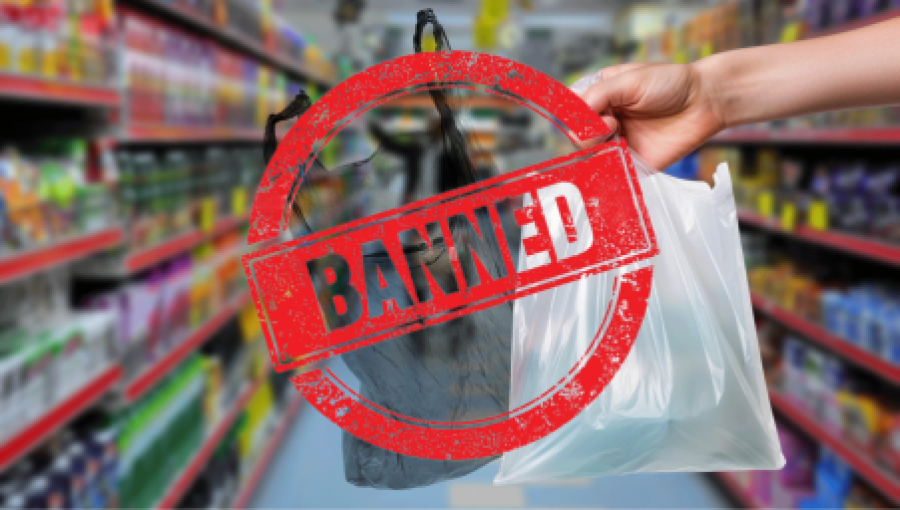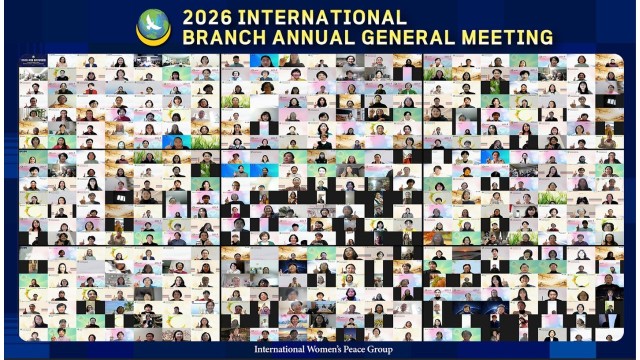Dhaka, Oct 28 (V7N)- The use of polythene bags in daily market transactions has become a significant environmental concern in Bangladesh, as these non-biodegradable bags frequently clog drainage systems, leading to severe urban flooding, particularly in the capital, Dhaka. Despite a longstanding legal ban, polythene bags continue to be used widely across the country, raising questions about the enforcement of environmental laws.
To combat this issue, the government announced a phased ban on polythene use in retail markets, prohibiting polythene bags in Dhaka's supershops starting from October 1 and extending the ban to raw markets on November 1. Authorities are now mobilizing to enforce these laws more rigorously, launching crackdowns on polythene production factories and encouraging the public to switch to eco-friendly alternatives like jute, cloth, and paper bags.
Hafiz Hossain, manager at Super Shop Prince Bazar in Mirpur, reported that environmentally friendly bag alternatives, such as mesh and jute bags priced between 6 to 17 taka, have replaced traditional polythene bags in his outlet. "Consumers are now required to purchase these eco-friendly bags for their shopping," he said.
M. Zakir Hossain Khan, CEO of the Change Initiative, a private organization focused on sustainable development, emphasized the need for public acceptance and habit formation around reusable bags. He suggests providing initial tax exemptions for jute bag producers and mandating their availability in stores to foster consumer buy-in.
Meanwhile, Dr. Mubarak Ahmed Khan, Chief Scientific Officer at Bangladesh Jute Mills Corporation, has developed a biodegradable jute polymer bag. These bags, now in limited production at the state-owned Latif Bawani Jute Mill, mimic the durability and functionality of polythene bags but break down within three to four months, leaving no environmental impact. "This innovation could significantly reduce environmental damage, especially if adopted on a larger scale," Dr. Mubarak said, adding that long-term success hinges on changing public attitudes toward single-use plastics.
According to research by the Environment and Social Development Organization (ESDO), Dhaka city residents discard around 2.5 crore polythene bags daily. Secretary-General of ESDO, Shahriar Hossain, commented that "Bangladesh was a pioneer in banning polythene globally," but the lack of enforcement has hindered the initiative. "In nations like Rwanda and Kenya, stringent laws have been effective. Applying a similar level of rigor here is essential."
The Department of Environment has coordinated with the Jute Ministry to ensure a steady supply of jute bags for raw markets. As of November 1, 20-25 organizations, including the Bangladesh Jute Mills Association, will supply jute, cloth, and paper bags, with additional raids on polythene producers planned.
Environment Advisor Syeda Rizwana Hasan underlined the importance of public awareness. "In Dhaka's supershops, polythene bags are already banned, and by November, this will extend to all markets. However, for the policy to work, consumer awareness and a commitment to alternative materials are crucial," she stated.
With these initiatives, the government aims to make Bangladesh polythene-free, setting an example for eco-friendly consumption and waste management.































Comment: